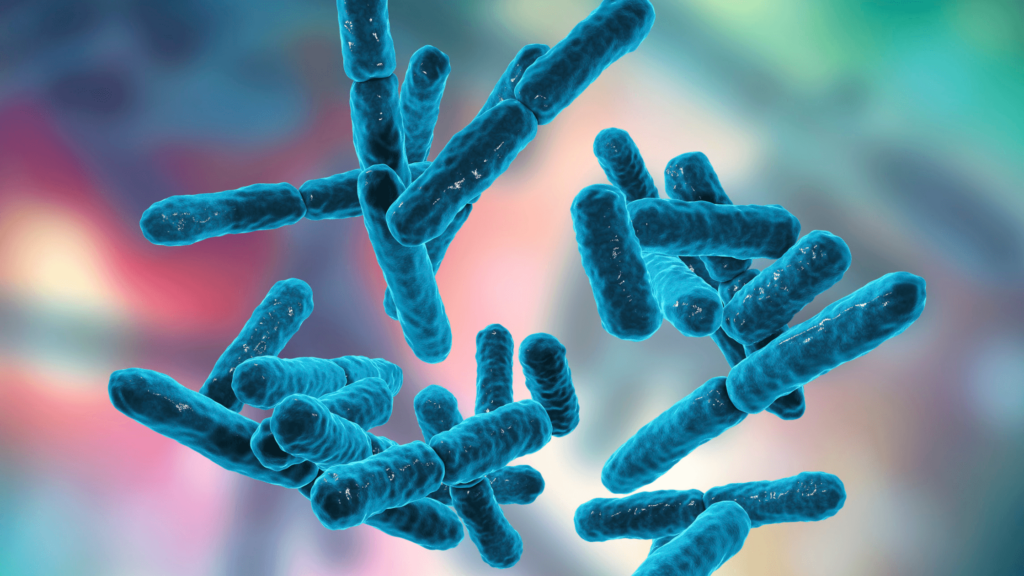Probiotics are live microorganisms naturally found in foods and supplements that maintain or improve the body’s levels of “good” bacteria (normal microflora). If you struggle with digestive discomfort, lack a well-rounded diet, or have just finished a course of antibiotics, chances are you need a probiotic.
Quick look
- Probiotics are living microbes that confer health benefits to the host
- There are dozens of strains of probiotic bacteria, each offering its own unique health benefits
- An unhealthy diet, frequent gas and bloating, and skin conditions are a few signs you may need a probiotic supplement.
What are probiotics?

Probiotics are a form of beneficial bacteria and yeast naturally found in the body that confers health benefits to the host when administered in appropriate amounts. They’re commonly referred to as ‘good bacteria’ thanks to the plethora of health benefits they offer to their host.
While your body naturally has a large population of microbes—this is called your microbiome—you can support it further with probiotic supplements.
Some of the most popular strains of probiotic bacteria include:
- Lactobacillus
- Bifidobacterium
- Escherichia
- Enterococcus
- Bacillus
- Streptococcus
Some fungal strains of probiotics belonging to Saccharomyces are also used for certain conditions.
While most people don’t think about the bacteria in their gut until something goes wrong, there are specific signs to look out for that suggest they might need to add probiotics to their diet.
5 signs you need a probiotic supplement
1. You lack a well-rounded diet

Grabbing a bite from the coffee truck might seem like an easy way to quench your hunger, but a diet high in sugar and refined carbohydrates (i.e., processed food) harms gut bacteria. Research shows that a high-sugar diet increases the relative abundance of Proteobacteria in the gut while decreasing the abundance of Bacteroidetes; Bacteroidetes offer beneficial effects on gut health and reinforce gut barrier function.
Put simply, a high sugar intake can disrupt the balance of microbiota in the gut towards a pro-inflammatory state, subsequently decreasing the capacity to regulate epithelial integrity and mucosal immunity.
The result: an imbalance of microbiota, an increased risk of metabolic endotoxemia, systemic (low-grade) inflammation, and metabolic dysregulation.
However, a poor diet has two effects. It shifts the balance of gut microbes towards the ‘bad’ ones and doesn’t replenish the good ones.
Fermented foods like sauerkraut, kefir, and kimchi are all rich in live bacteria that replenish and repopulate your gut microbiome. If you don’t consume probiotic-rich foods, you’ll need to rely on a probiotic supplement to rebalance and re-establish gut health.
The takeaway: If your diet lacks fermented foods, consider a probiotic supplement to help bridge the gap.
2. You’ve recently finished a course of antibiotics
Antibiotics are sometimes necessary to treat a bacterial infection, but antibiotics don’t discriminate between good and bad bacteria—they kill it all.
Studies suggest that antibiotic‐induced changes in the gut’s microbial composition can lead to negative outcomes for the host’s health, including “reduced microbial diversity, changes in functional attributes of the microbiota, formation, and selection of antibiotic‐resistant strains making hosts more susceptible to infection with pathogens such as Clostridioides difficile.”
How long your microbiome is disrupted typically depends on how many courses of antibiotics you’ve taken.
One study found that even a short course of antibiotics can disrupt the gut microbiome for up to one year or more. However, a 2020 review found that microbial diversity can recover after just six months.
The point: Antibiotics are designed to kill harmful bacteria as well as good bacteria. If you’ve recently taken antibiotics, replenishing and repopulating good bacteria in your gut with probiotic-rich foods or a probiotic supplement is key.
3. You frequently experience digestive issues (gas, bloating, etc.)
Gas, bloating, and general GI discomfort are all signs that something isn’t right, and in most cases, it boils down to poor gut health.
Whether you frequently experience digestive issues or only occasionally, chances are you can benefit from adding a probiotic to your diet.
Remember: While digestive symptoms like gas and bloating can stem from many factors, they’re often signs that your gut has difficulty breaking down and eliminating food.
Taking the necessary steps to balance gut bacteria and improve gut health should improve symptoms. But if they persist without improvement, speak to your healthcare professional to rule out serious conditions.
4. You’re constantly sick

Over 70% of your immune system lives in your gut, meaning your immune system and gut health are heavily intertwined. Immune cells in the gut interact with the microbiome and are directly influenced by your diet and lifestyle.
The Standard American Diet (SAD), which is high in poor-quality animal proteins, sugar, processed foods, and saturated fat, leads to less-diverse gut bacteria and promotes inflammation and chronic diseases. A whole-food, high-fiber diet, on the other hand, supports a healthy microbiome and reduces inflammation.
A recent study from the University of Toronto shed light on how the community of microbes in our gut contribute to a well-functioning and robust immune system and defend against harmful pathogens.
Put simply, if you’re constantly sick or have trouble getting over colds, it could be a sign that you need to introduce probiotics to restore balance to your internal ecosystem.
5. You struggle with skin conditions
Your outside is a direct reflection of your inside, and if you struggle with skin conditions like eczema, psoriasis, acne, or even dry skin, it could be a sign that your microbiome is out of whack.
Bacteria don’t just live in your digestive tract—they also live on your skin. Recent research suggests that one way probiotics can help your skin is via the immune system. Since probiotics can help prevent the immune system from overreacting and triggering inflammation, they may benefit inflammatory skin conditions like acne, atopic dermatitis, and rosacea. Probiotics also offer benefits such as improving the skin’s moisture barrier and preventing dry and irritated skin.
Tip: If you’re taking antibiotics to treat acne, adding a dose of probiotics after you’ve finished with antibiotics can help restore balance to your microbiome and prevent yeast infections.
Health benefits of probiotic supplements
The link between digestive health and our overall health and well-being is hugely important, and a healthy and balanced gut microbiome plays a key role in that.
Most people aren’t aware of how far-reaching gut health is, and research shows that microbial imbalances can also contribute to several other symptoms and conditions, including:
- Diarrhea and constipation
- Abdominal discomfort
- Excessive gas and bloating
- Fatigue
- Acid reflux/heartburn
- Anxiety and depression
- Insomnia
- Skin conditions
- Hormonal imbalances
- Thyroid disorders and autoimmune conditions
- Joint pain
These are just a few signs and symptoms that can indicate a microbial imbalance in the gut. Fortunately, a probiotic supplement can help address the root issue and replenish and restore gut balance.
Here are the top health benefits of probiotics:
- Restore gut microbial balance
- Prevent and treat diarrhea
- Improve symptoms of certain mental health disorders
- May reduce cholesterol and blood pressure
- Improve symptoms of digestive disorders
- May support weight loss in overweight and obese people
Bottom line
Probiotics are good for more than just digestive health. The gut’s health is intertwined with nearly every system in the body, which means that poor gut health leads to poor overall health. If you’re struggling with symptoms and can’t pinpoint the cause, focusing on gut health could help alleviate your symptoms and restore balance.



2 comments